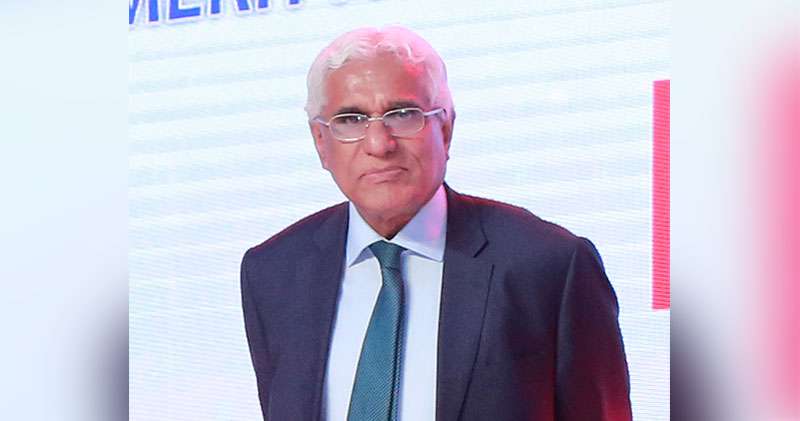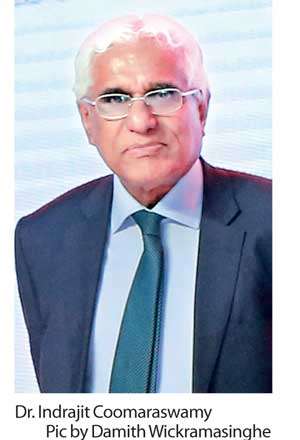Reply To:
Name - Reply Comment

By Nishel Fernando
Sri Lanka plans to implement the standardised National Quick Response (QR) code-based transactions named LANKAQR shortly, aiming to speed up electronic transactions and to make electronic payments affordable to masses, while several other initiatives are underway to promote cashless transactions.
Addressing the ‘LankaPay Technovation Awards 2018’ held in Colombo last week, Central Bank Governor Dr. Indrajit Coomaraswamy revealed that within a very short period of time, the Central Bank would issue the required specifications for the implementation of the National QR code in the country.

“The Monetary Board of the Central Bank has granted the approval for the standardised national QR code-based transactions named LANKAQR. The QR code would allow any small merchant, be it a street-side vendor or a taxi driver, to accept electronic payments just by having a printed QR code and basic mobile phone. These innovations have been a result of industry collaboration to bring together the dispersed talents into concerted efforts towards advancing financial services,” he said.
He noted that the Fintech Subcommittee under the National Payment Council of the Central Bank has been working on developing the standardised national QR code as well as a National Transit Card for Sri Lanka.
The standardised QR code-based transactions are widely seen as a step towards financial freedom in terms of cashless transactions, enabling the consumers to make cashless payments directly to the merchant’s bank account with ease and enhanced security while avoiding the point of sale terminal and transaction charges associated with it.
The QR code-based payments gain popularity with China’s rapid adoption of QR code-based payments, which were dominated by WeChat and Alipay, which gradually expanded to other countries, including India. Singapore this year launched what it claimed to be the world’s first unified payment QR code, which will be adopted by 27 payment schemes in Singapore.
“We have seen firsthand the benefits and efficiencies that digitization has for easing entry barriers to markets, correcting information anomalies and for inclusive growth policies,” the governor said. Dr. Coomaraswamy emphasised that the anticipated introduction of the National Card Scheme would also benefit the country in many ways.
LankaClear (Private) Limited and JCB International Co. Ltd, the international operations subsidiary of JCB Co., Ltd (JCB), last year entered into a strategic partnership to establish a National Card Scheme to issue LankaPay-JCB co-branded cards and to jointly promote the acceptance of such cards with the JCB payment solutions; the National Card Scheme is expected to be launched this year.
“The current merchant discount rate of international card schemes is high on 1.5 percent to 3 percent. Therefore, some merchants are reluctant to accept card-based payment. This initiative will also contribute to reduce foreign currency payments to international card schemes,” Dr. Coomaraswamy pointed out. He also asserted that the digitization of government services is another priority area of the government. “With the introduction of electronic payments to the government sector, the payment and collection process of the government will be streamlined, ensuring timely find flows to the government while reducing the cost of revenue collection,” he said.
He noted that as the first phase, the LankaPay online payment platform was implemented by LankaClear initially to facilitate payments to Sri Lanka Customs by streamlining the processes that were previously time-consuming and costly.
He revealed that e-payments would also be introduced to other government departments in the future, such as the Inland Revenue Department, Board of Investment, Sri Lanka Ports Authority as well as the Provincial Councils and Local Governments Ministry, under the e-Local Government project.
Speaking of the growing popularity for digital currencies globally, Dr. Coomaraswamy said that the Central Bank is considering the forms of regulated digital currency, such as digital fiat currency, to achieve a balance between regulation and innovation as it’s responsible to the people and government of the country for the safety and security of public funds. However, he stressed that on cryptocurrencies, the Central Bank would maintain its current stance, which was issued in April 2018.
“The Central Bank cautioned the users, holders and traders of virtual currencies regarding the potential economic, financial, operational, legal, customer protection and security risks associated in dealing with virtual currencies and initial coin offerings. The CBSL notified that it has not given any licences or authorisation to any entity or company to operate such schemes in Sri Lanka. The stance is in line with many other countries in the region,” he reiterated.
He further revealed that the Blockchain Committee under the National Payment Council is working towards understanding how the blockchain technology can be utilised to improve financial services.
While ensuring the Central Bank’s continuous support for digitisation, the governor said, “The CBSL is fully supportive of digitisation and the use of new technologies and in fact promotes a less cash society in Sri Lanka through the use of new cashless payment mechanisms, such as digital banking payments, smart mobile apps, mobile wallets, QR code-based payments and nickname-based payment and initiatives on e-commerce payments.”
He noted that the Central Bank had taken several measures to support digitisation. He recalled the Central Bank’s decision to impose maximum limits on the transaction fees of the Sri Lanka Inter Bank Payment System, Common Electronic Fund Transfer Switch and other payment channels, targeting reducing the consumer’s cost for electronic payments and increasing the utilisation of the available capacity of electronic payment systems. However, the governor stressed that Sri Lanka also needs to be cognizant of the regulatory shortfalls, particularly the fintech innovations could have.
“The Central Bank has initiated the process to set up a FinTech Regulatory Sandbox for Sri Lanka so that the CBSL can provide an environment that nurtures and promotes the advancement of fintech innovations whilst maintaining the appropriate regulatory standards,” he said.
Touching the security issues arising from cyberattacks, Dr. Coomaraswamy cautioned that while being optimistic in technological innovations, Sri Lanka also needs to be concerned on cyber security threats, which broadly involves techniques such as insider attacks, different types of malware, advanced persistent threat attacks and social engineering attacks, etc.